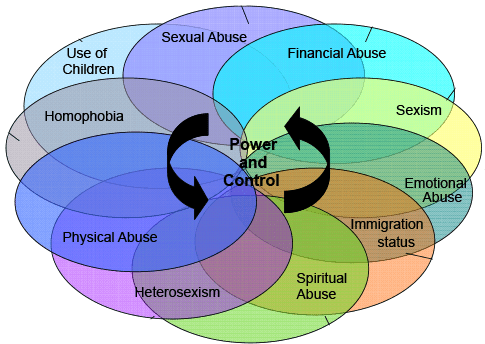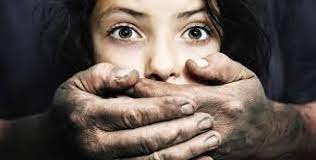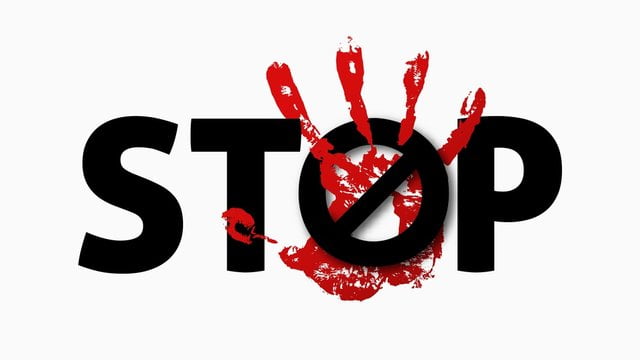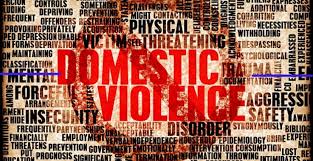Domestic violence and abuse is an issue that plagues the United States. Every year, millions of women suffer from domestic abuse in homes across America. The statistics are staggering and yet many people still do not understand what domestic violence and abuse are, how it affects victims, or what they can do to help stop this epidemic from continuing. This article will introduce you to the topic of domestic abuse and hopefully make you feel more informed about the problem so you can take steps toward ending it!
Contents
What are Domestic Violence and Abuse?
Domestic violence and abuse are when one person in a relationship hurts the other emotionally, physically, or sexually. The abuser does not have to be someone who you are currently dating—it can also include abusive ex-partners as well. There are many different forms of domestic violence and abuse, including:
- Physical Abuse
- Emotional or Psychological Abuse
- Financial Control/Economic Coercion
How do I know if someone is abusing me?

If you think that your partner may be hurting you in some way, there are some signs to look for in order to determine if their behavior is abusive.
- Signs of Emotional or Psychological Abuse:
Your partner may make fun of you, put you down, call you names, threaten violence against you and/or your children—they may demand that they know where you are at all times even when it would be impossible for you to know where they are.
- Signs of Financial Control/Economic Coercion:
Your partner may be jealous if you go out with friends, accuse you of being unfaithful, or take your money without asking—they could also threaten to hurt themselves unless they get what they want from you.
- Signs of an Abusive Relationship:
If you notice any of these signs in your relationship, it is likely that there are problems. You may be experiencing abuse and need to take steps toward finding safety for yourself!
Other signs of abuse are having a partner who is cruel to you or tries to take control of you. You may also have feelings of self-loathing, feeling hopeless and desperation.
- Do the following questions describe your relationship?
- Do you feel that you are not safe when you are with your partner?
- Does he or she control what you wear, who you talk to, where to go, etc.?
- Has he or she ever hit, punched, slapped, or kicked you?
- Have you been forced to have sex or raped?
- Does he or she treat your friends and family poorly, make them feel bad about themselves, embarrass them in front of others?
- Do they constantly check up on you when you are at home alone by calling, texting, emailing—how often do they ask where you are going before you go anywhere?
- If you answered yes to any of these questions, then your relationship might be an abusive one. It is important that you are able to recognize the signs so that you can begin taking steps toward protecting yourself and getting out of the situation.
- Yes! You should know if someone does not treat or talk about other people in a way that suggests they are inferior to them.
- No! If you have not been hit, punched, slapped or kicked by your partner—it is likely that the behavior in question does not constitute abuse and/or domestic violence.
Physical and Sexual Abuse

Physical and sexual abuse are the most obvious forms of violence. These behaviors occur when one person physically hurts another, including hitting/kicking/punching or raping—this can happen to anyone regardless of gender.
Sexual Abuse
Rape is sex that you do not agree to have with someone else; it may be done through force, threats of violence, or using fear. It is not sex that you agreed to have with someone else even if they think it was consensual—it is important to realize that consent cannot be given by a person who does not understand what sexual activity entails, e.g., if they are drunk/high on drugs (which would make them unable to give consent).
Physical Abuse
Hitting, kicking, slapping or punching is considered physical abuse. It can happen to anyone regardless of gender—however, it is especially common for women and children to be victims of this form of violence. Furthermore, if someone hits you, call the police immediately! Your safety should always come first!
Self-Blame
It is common for victims of violence and abuse to blame themselves, but you should remember that it is never your fault. It can be hard to get out of an abusive relationship because the abuser may use many tactics in order to keep their victim under control such as guilt-tripping, threatening violence if they leave or stay away from them, etc.
Emotional Abuse
Emotional abuse is characterized by behaviors that hurt a person’s self-esteem or make them feel bad about themselves.
You may be experiencing emotional abuse if your partner calls you names, insults you in front of others, humiliates and degrades you, tries to control what you do with your time/money, etc.
It is important to remember that emotional abuse can take many forms—if you are being emotionally abused this does not mean your relationship is necessarily abusive or unhealthy; however, it may be a red flag of problems down the road if it continues over time.
Other Signs Your Partner Might Be Abusive:
- Does your partner make frequent threats to hurt you or others if they do not get what they want?
- Does your partner ever try and control who you talk to, where you go, etc.?
- Is he/she constantly jealous of the time that other people spend with you—does this person accuse you of flirting with or cheating on them?
- Do you feel like there is no way of getting your partner to see the truth about how they are acting?
Yes! It is never okay for someone to threaten violence if their needs/wants aren’t met. No! If your partner does not ever try and control who you spend time with—it is unlikely that this behavior constitutes abuse. No! If you feel like your partner is not willing to listen when they are accused of doing something wrong, then this behavior does not constitute emotional abuse.
Abusive behavior is a choice
Abusers are responsible for their own actions—it is never your fault or responsibility to take care of them. You deserve better!
You should know if someone does not treat or talk about other people in a way that suggests they are inferior to them. If you have been hit, punched, slapped, or kicked by your partner—it is likely that the relationship is abusive. If your partner often accuses you of cheating or flirting with other people, it can be a sign that they are trying to control how much time and attention you spend on others—this does not indicate whether the behavior constitutes abuse but should definitely raise warning signs!
- Dominance: Abusive people need to feel in charge of the relationship. They tell you what to do and might treat you like their servant.
- Humiliation: An abuser will try to make you feel bad about yourself. They might tell you that something is wrong with you. If you believe that no one likes you, then you won’t leave. Insults, name-calling, and shaming make you feel bad. They can make you feel like you cannot do anything well.
- Isolation: An abusive partner will make you feel like you can’t do anything. They cut you off from the outside world like friends and family. They may keep you from seeing family and friends, or even prevent you from going to work or school. You might need to ask permission. You might need to be able to go places or see people.
- Threats: Some people who abuse their partners will threaten them to make them stay, or scare them so they don’t go to the police. Your abuser might threaten to hurt you, your children, other family members, or even your pets. Some people might say that they will hurt themselves or make up false charges against you. It’s okay to be scared, but don’t let them scare you.
- Intimidation: Your abuser might use different ways to scare you. Some people do this: They threaten you, break things in front of you, they destroy property, and hurt pets. Put weapons on display. The message behind these actions is that if you don’t obey, you’ll get in trouble.
- Denial and blame: Abusers make excuses for the wrong things they do, and this is wrong. Abusive and violent people may blame their behavior on a tough day, your fault, or their tough childhood. They may say that the abuse did not happen. Sometimes, people are violent with you. They may say it is your fault.
The Cycle of Violence in Domestic Abuse
- Abuse: The person might apologize and promise to change their behavior. This is called the “Tension Building Phase” because things get worse little by little. The abuser will say or do something nice for you, which causes you to believe the abuse won’t happen again. You may feel like it was your fault and that you can help stop the abuse.
- Guilt: You may feel like you are the problem and that they will change. The abuser will do something nice for you, making it seem like everything is okay. They might convince you to let them back in your life again—but this time without any witnesses (friends or family). You might start to trust and believe their apologies and promises of no more abuse.
- Excuses: They apologize for their behavior and blame you, others, or the situation. They may say they were drunk or had a bad day when it happened. The abuser might act like nothing ever happened—that is until later on when tension starts to build up again in the relationship.
- Harmful Actions: People who abuse will be violent during times of stress, like when they are angry. The abuser might punch walls, break furniture or other objects, yell at you and blame you for their actions. If the abuse escalates to this level—you should seek help; regardless of whether it is physical or not!
- Warnings: Some people may start acting out before becoming physically violent (acts of aggression—like pushing or shoving). It might be good to keep a safe distance. Try not to start an argument but leave if you can do it safely.
How To Recognize the Warning Signs Of Domestic Violence?

There are some warning signs to look out for in a partner. These include:
They might be very jealous of other people you spend time with or suspect that you may cheat on them. They might try to break into your email account, phone messages, and social media accounts. If they have access to your passwords—all the better! Some people may track your cell phone or monitor where you go.
Some people show a lot of anger and they blame their actions on this anger, which can be scary because it is unpredictable—what might set them off? They always have an excuse for the wrong things that happen in the relationship. It’s not uncommon for abusive partners to become violent with you. Other warning signs include threats, intimidation through threats or violence, and jealousy.
Conclusion
One of the most important things to remember is that there are resources out there for you. We’ve provided an excellent article about how to tell if your partner has a problem with domestic abuse, as well as what you can do next if they have one. Furthermore, if this sounds like something that might be happening in your relationship, please know that help is available and it never hurts to reach out! Know someone who could benefit from these tips? Share this blog post on social media so others can learn more too.
For more information, please contact MantraCare. Abuse is a serious and harmful behavior that can cause physical, emotional, or psychological harm to a person. If you have any queries regarding Online Counseling experienced therapists at MantraCare can help: Book a trial Online therapy session


